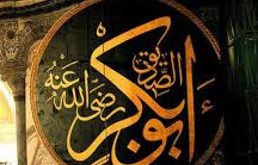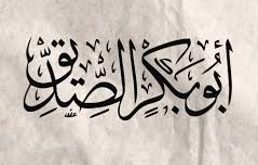Hazrat ‘Aamir (rahimahullah), the son of Hazrat Sa’d (radhiyallahu ‘anhu), narrates the following from Hazrat Sa’d (radhiyallahu ‘anhu):
During the Battle of Khandaq (the Battle of the Trench), there was a disbeliever carrying a shield. He would use the shield to cover his face, and he would thereafter lower it (in order to see). I reached for my quiver and extracted an arrow that was blood-stained.
I placed the arrow in my bow, and as soon as he lowered the shield, I fired. I will not forget the manner in which the shaft of the arrow fell onto such-and-such portion of the shield (after striking the disbeliever). When the arrow struck him, the disbeliever fell, raising his legs into the air. On this occasion, Rasulullah (sallallahu ‘alaihi wasallam) smiled until his blessed teeth could be seen.
Hazrat ‘Aamir (rahimahullah) says, “I asked Hazrat Sa’d (radhiyallahu ‘anhu) why Rasulullah (sallallahu ‘alaihi wasallam) had smiled. Hazrat Sa’d (radhiyallahu ‘anhu) replied, ‘He smiled at the action of the disbeliever (i.e. the manner in which Hazrat Sa’d (radhiyallahu ‘anhu) had killed the disbeliever).”
(Musnad Ahmed #1620)
Imaam Muslim (rahimahullah) has narrated a similar narration from Hazrat ‘Aamir (rahimahullah) in which Hazrat Sa’d (radhiyallahu ‘anhu) said the following:
During the Battle of Uhud, Rasulullah (sallallahu ‘alaihi wasallam) made special du‘aa for me saying, “Fire the arrow! May my father and mother be sacrificed for you!” There was a man from the disbelievers who had caused great harm to the believers. Nabi (sallallahu ‘alaihi wasallam) said to me in regard to this disbeliever, “Fire the arrow! May my father and mother be sacrificed for you!” I thus pulled a sharp arrow that was without a blade at the front. I fired it, hitting him on his side. When the arrow hit him, he fell to the ground and his ‘awrah became exposed. Rasulullah (sallallahu ‘alaihi wasallam) then smiled until I could see his blessed teeth (out of happiness that the enemy of Islam, who had harmed so many Muslims, had been killed).”
(Saheeh Muslim #2412)
Source: Whatisislam.co.za
 Ihyaaud Deen An Effort to Revive Deen in Totality
Ihyaaud Deen An Effort to Revive Deen in Totality



